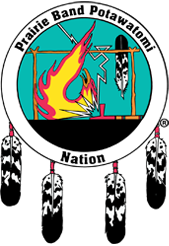Today’s D.C. Circuit Ruling Bolsters Tribe’s Claim
MAYETTA, KANSAS, January 5, 2021—The Prairie Band Potawatomi Nation (“Prairie Band”) announced today that it has re-filed litigation against the U.S. Department of Treasury relating to the distribution of CARES Act funds to tribal governments, seeking payment of an additional $7,631,673 in funds for severely undercounting the Prairie Band’s enrollment.
Background on the CARES Act Funding. The CARES Act provided for an $8 billion Coronavirus Relief Fund for Tribal governments. To implement the CARES Act, the Treasury and Interior Departments held two consultation sessions with Tribal leaders to solicit input on how to distribute the CRF monies. In early April, the Treasury Department (which has the obligation to disburse the funds) requested information from all 576 Tribal governments for purposes of developing a distribution formula to allocate 60% of the Tribal CRF, or $4.8 billion (“Round 1”). This data request included a request for the Prairie Band’s Tribal enrollment population and other related data.
Inexplicably, the Treasury Department then proceeded to ignore all of the requested data – including tribal enrollment figures – and instead adopted a formula used to distribute Indian Housing Block Grants (“IHBG”). This was despite its acknowledgment that “Tribal population is expected to correlate reasonably well with the amount of increased expenditures of Tribal governments related directly to the public health emergency.” See U.S. Department of Treasury, Coronavirus Relief Fund Allocations to Tribal Governments, May 5, 2020. And also despite the fact that not one Tribal leader during the consultation process asked for the IHBG formula to be applied.
Based on Treasury’s Round 1 formula, the Prairie Band received $2,456,891.27. The initial impression was that this was a low figure, given the Nation’s tribal population of 4,561 members. However, suspicions were confirmed when a report analyzing the distributions was issued by the Harvard Project on American Indian Economic Development. See R. Akee, E. Henson, M. Jorgensen, & J. Kalt, Dissecting the US Treasury Department’s Round 1 Allocations of CARES Act COVID-19 Relief Funding for Tribal Governments, May 18, 2020.
Gross Error by the Treasury Department Revealed. The Harvard Report revealed that, if the Treasury Department had utilized the Tribal enrollment data as originally requested, the Prairie Band would have received $10,327,948, or $7,631,673 more than actually received. Id. at 10. Indeed, the Harvard Report indicated that the Prairie Band was in the “top 25” tribes that were “under-represented” by the Treasury’s use of the IHBG formula. That formula assigned to the Prairie Band a population figure of 883, compared to any actual population of 4,561.
The Harvard Report also revealed even harsher results for many other Tribes, with Treasury recording “zero” Tribal population for some, thus allocating only the minimum $100,000.00 to those Tribes to assist their people. These tribes, including the Shawnee Tribe and the Miccosukee Tribe, have also commenced litigation against the Treasury Department.
Prairie Band Withdraws Suit Without Prejudice. Last year, the Prairie Band filed a federal lawsuit against the Treasury Department but was denied relief by District Court Judge Amit Mehta on the grounds that Treasury’s CARES act distribution process was not judicially reviewable. The suit was later withdrawn without prejudice.
Today’s Ruling in Shawnee Tribe v. Mnuchin. Today, the D.C. Circuit Court of Appeals reversed Judge Mehta’s decision in the Shawnee Tribe case holding that Treasury’s actions in distributing CARES funds was, as a matter of law, judicially reviewable. The appellate court also granted an injunction in favor of the Shawnee Tribe concluding that it would be “likely to succeed in its claim that the IHBG data is not a suitable proxy for “increased expenditures” and that “the Secretary is distributing congressionally appropriated funds in violation of the authorizing statute.”
In announcing the re-filing of its lawsuit, Prairie Band Chairman Joseph Rupnick stated:
“We are re-filing our lawsuit today against the Treasury Department to correct an
injustice. Because of our community philosophy regarding housing, we do not rely heavily onfederal HUD monies to provide housing to our people. The Prairie Band has only 17 HUDfunded housing units and because of this fact, the Treasury Department underfunded us by 80% of the amount of money we would have otherwise received to help our people address the COVID-19 pandemic.”
“Like all Federally-recognized tribal nations, the Prairie Band has been affected by the
COVID-19 pandemic and our Tribal government has declared a disaster, imposed stay-at-home orders on our people, closed our enterprises, and provided direct services and support for our people under quarantine during the last four months. This has resulted in tremendous hardship to our people, our families, and the people we employ in our region in Kansas.”
It flies in the face of fundamental principles of federal Indian law and policy that the U.S.
Treasury would disregard Tribal enrollment data as a barometer of a Tribal government’s service obligation to its people in favor of wildly inaccurate race-based housing data. But that is what happened. And it was arbitrary, capricious, and wrong.
